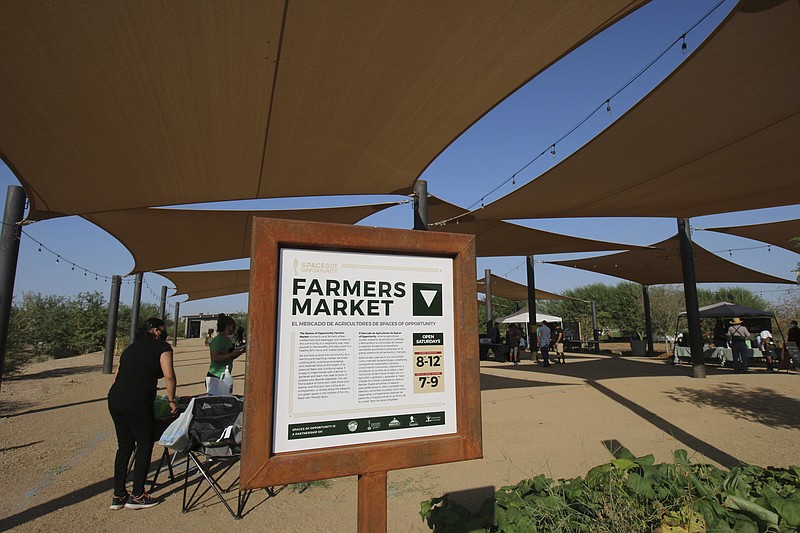As a second round of Paycheck Protection Program assistance from the federal government gets underway, a local banker said there were some surprises in the new chapter of the program that may be beneficial to restaurants, hotels and some farms.
The Paycheck Protection Program, or PPP, was established last spring to aid businesses during the economic crisis spurred by the COVID-19 pandemic.
Businesses and self-employed individuals in Jefferson City alone collectively were approved in 2020 to receive almost $130 million in loans through PPP.
The program received some new funding in the latest federal pandemic relief bill for another round of loans to businesses, and some banks started taking applications last week.
Eligible businesses this time around that already received loans last year will be able to borrow up to $2 million - if they employ no more than 300 people and had a drop in quarterly revenue of at least 25 percent.
New borrowers with no more than 500 employees will be able to borrow up to $10 million.
Leslie Tanner, vice president of commercial loans and a commercial lender at Central Bank - the local bank that handled the largest share of the largest PPP loans last year - said, "it's really kind of even" in terms of whether previous recipients or new loan-seekers are reaching out about the second round.
Tanner said it's good to hear about "a significant amount" of businesses that did not qualify again because they did not suffer such a drastic drop in quarterly revenue.
Missouri's economy has significantly recovered since the spring, but the hardest-hit industries continue to be service ones that were most vulnerable to disruptions to offices, schools, health care, and especially entertainment venues, travel, lodging and restaurants.
The size of a loan a PPP recipient gets is partly determined by a multiplier applied to businesses' payroll. Tanner said this time around, while the standard multiplier is 2.5, restaurants and hotels will have a multiplier of 3.5 - a feature she had not been expecting.
While Jefferson City Medical Group, large manufacturers such as Meyer Electric Company and Modern Litho Inc., and other large businesses employing hundreds of people topped the list of federal data for the largest PPP loans approved in Jefferson City last year - worth millions of dollars each - local restaurants and franchises including Madison's Cafe, Little Caesars, Culver's and Buffalo Wild Wings made up much of the top of the list of approved loans less than $150,000 that supported the most jobs.
Learning Connection Child Development Center is another business with a first round loan under $150,000 that also supported a lot of jobs among that category - 45 jobs, according to federal data.
The child care center on Scott Station Road is directed by Nena Koelling, who owns it with her husband. Koelling said the business does not qualify for a second round PPP loan based on its revenue.
She said enrollment at the child care center is almost back to normal, after there were no children around during the initial shutdown last year, with enrollment still down into the summer.
While the financial losses last year were not enough to qualify for a second PPP loan, there are still some sanitation and building upgrade needs on account of COVID-19 that could be done if more funding was available, Koelling said. "The first load of money mainly just went to keep payroll, keep staff paid their 40 hour week."
"We're really grateful for what we did have, and I hope other people get to take advantage of it, too," she added.
Tanner said she was surprised to learn of the new round of loans that there will be expanded access for another group of businesses - farmers.
She said a new calculation in the latest PPP round will mean more sole proprietor farmers would be eligible for some aid.
"That was one of the changes that we really liked that Congress made," Tanner said.
PPP loans are forgivable, and Tanner said there has not been an application for forgiveness she's made yet from the first round that has been denied or not fully forgiven.
Late last month, she estimated 20 percent of the first-round loans had been forgiven - and that was up to 40 percent Friday.
While Koelling said applying for forgiveness was pretty easy for her, Tanner expected a less complicated form to make forgiveness easier for loans of less than $150,000 would be released Wednesday.
As previously expected, Tanner said, the government was no longer taking deductions from PPP forgiveness for advances on separate economic injury loans last year.
Eligible expenses for businesses that can be covered by the second round of PPP loans include payroll, rent and mortgage interest, utilities, property damage and protections for workers from COVID-19, including personal protective equipment, Tanner said.
She expected to be particularly busy submitting applications Tuesday, after the banking holiday Monday for Martin Luther King Jr. Day.
New PPP lending started last week with lenders whose customers are minority-owned and economically disadvantaged businesses. Tanner said banks with assets numbering less than $1 billion could start with their applications last Friday.
The Associated Press contributed information to this report.

